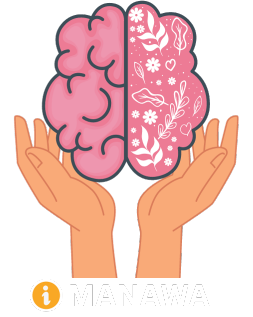
Introduction
Mental health is a crucial aspect of overall well-being, impacting every aspect of our lives. It encompasses our emotional, psychological, and social well-being, affecting how we think, feel, and act. As the understanding of mental health deepens, researchers and experts have started to explore the role of genetics in mental health disorders. This article distills the latest research and expert opinions to answer the intriguing question: can mental health be genetic?

Can Mental Health Be Genetic?

The interplay between genetic factors and mental health has been the subject of extensive research. While environmental factors such as upbringing and life experiences undoubtedly influence mental health, evidence suggests that genetics also play a significant role. Numerous studies have explored the heritability of mental health disorders and found compelling links between genetics and various conditions.
The Genetic Basis of Mental Health Disorders
Research has shown that certain mental health disorders, such as schizophrenia, bipolar disorder, and major depressive disorder, tend to run in families. This familial aggregation suggests a strong genetic component. Twin studies have provided further insight into the heritability of these disorders, with monozygotic twins (who share 100% of their genes) being more likely to both develop the disorder compared to dizygotic twins (who share only 50% of their genes).
Unraveling the Genetic Markers
Advancements in genetic research have allowed scientists to identify specific genes and genetic variations associated with mental health disorders. Genome-wide association studies (GWAS) have been instrumental in pinpointing these genetic markers. For example, a GWAS conducted on schizophrenia patients revealed several risk loci associated with the disorder. These genetic markers provide valuable insight into the underlying biological mechanisms contributing to mental health disorders.
The Role of Epigenetics
Epigenetics, the study of heritable changes in gene expression that do not involve alterations to the DNA sequence, has shed further light on the connection between genetics and mental health. Epigenetic modifications can be influenced by a range of environmental factors, including prenatal experiences, early life trauma, and chronic stress. These modifications can impact gene expression and potentially increase the risk of mental health disorders.
Gene-Environment Interaction
While genetics may predispose individuals to certain mental health disorders, environment plays a crucial role in determining whether these genetic traits are expressed. The interplay between genetics and environment is complex and dynamic. Research has shown that individuals with a genetic predisposition to mental health disorders may be more susceptible to environmental triggers, such as stressful life events or exposure to trauma.
Exploring Other Factors
While genetics undoubtedly contribute to mental health, it is essential to consider the multitude of other factors that influence mental well-being. Social determinants of health, such as socioeconomic status, access to quality healthcare, and social support networks, can significantly impact mental health outcomes. Additionally, individual resilience, coping mechanisms, and personal experiences shape our mental well-being.
Addressing Stigma and Promoting Understanding
Recognizing the genetic component of mental health can help reduce stigma and promote understanding. It allows for a shift in perspective, understanding mental health disorders as medical conditions rather than personal failings or weaknesses. Embracing a genetic perspective fosters empathy, compassion, and a more inclusive society.
Frequently Asked Questions

Q: Can mental health disorders skip a generation?
A: While mental health disorders can run in families, they may not necessarily skip a generation. Genetic predispositions can manifest differently in each generation, influenced by factors such as environment, lifestyle choices, and individual resilience.
Q: Are all mental health disorders genetic?
A: No, not all mental health disorders have a strong genetic component. Disorders like anxiety and substance abuse disorders, for example, have complex interactions between genetics, environment, and individual experiences.
Q: Can mental health be solely attributed to genetics?
A: Mental health is influenced by a combination of genetic, environmental, and social factors. While genetics play a role, it is essential to consider the broader context in which mental health is shaped.
Q: Are there genetic tests available for mental health disorders?
A: Genetic testing for mental health disorders is still in its early stages. While some tests are available for specific conditions, such as Huntington’s disease, the broader application of genetic testing in mental health is an ongoing area of research.
Conclusion
In conclusion, the question of whether mental health is genetic is a complex one. While genetics play a significant role in certain mental health disorders, it is crucial to acknowledge the interaction between genetics, environment, and individual experiences. Understanding the genetic basis of mental health disorders can aid in reducing stigma, promoting empathy, and fostering a more supportive society. Further research and exploration of this topic will undoubtedly expand our understanding of mental health and pave the way for improved interventions and treatments.
